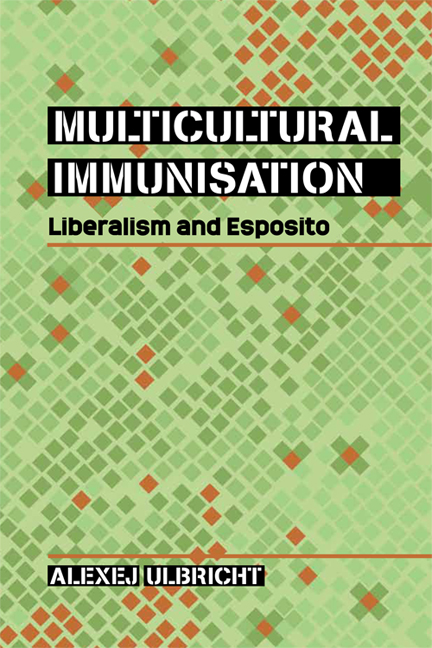Book contents
- Frontmatter
- Contents
- Acknowledgements
- 1 Introduction
- 2 Liberal Thought on Multiculturalism
- 3 Multiculturalism as a Mode of Immunising the Body of Liberalism
- 4 Liberal Multiculturalism and Rights: Citizens, Humans and Other Subjects
- 5 Disagreement and the Horizons of Consensus
- 6 Recognition: Tolerant, and Cunning
- 7 Multiculturalism Beyond Immunity
- 8 Conclusion
- Bibliography
- Index
5 - Disagreement and the Horizons of Consensus
Published online by Cambridge University Press: 05 August 2016
- Frontmatter
- Contents
- Acknowledgements
- 1 Introduction
- 2 Liberal Thought on Multiculturalism
- 3 Multiculturalism as a Mode of Immunising the Body of Liberalism
- 4 Liberal Multiculturalism and Rights: Citizens, Humans and Other Subjects
- 5 Disagreement and the Horizons of Consensus
- 6 Recognition: Tolerant, and Cunning
- 7 Multiculturalism Beyond Immunity
- 8 Conclusion
- Bibliography
- Index
Summary
In this chapter, I will be looking at issues surrounding dialogue and consensus in liberal theories of multiculturalism and arguing that in the liberal approach these act as processes of immunisation. Models based on dialogue and consensus (whether overlapping or otherwise) take on an important role in many theories of liberal multiculturalism, as they offer a way of moving beyond state neutrality and narrow proceduralism – approaches that are generally viewed critically by liberal multi - culturalists. However, the models of dialogue and consensus building that step into their place bring problems of their own and also reproduce some of the problems associated with proceduralism and neutrality in a backhanded way. So I will be looking here primarily at consensus, but even as I analyse how consensus operates, the figure of the subject that I looked at previously will continue to exert its hauntological presence. Similarly, the term ‘core values’ will already start to appear, fore - shadowing what I will be dealing with in the next chapter.
I will start by looking at how liberal theories of multiculturalism figure consensus into their working, in particular as they advance a certain kind of dialogical model. As I have stated before, I will be focusing here on the work of Bhikhu Parekh. I should reiterate that, as with Chapters 4 and 6, this is not because it is only in Parekh that consensus is important, nor because it is only consensus that is important in Parekh. Rather, it is because we can find in Parekh a very good illustration of the kind of work that ideas of consensus perform in liberal theories of multiculturalism. I will begin, then, by outlining how consensus figures in Parekh's theory. I will then turn to Jacques Rancière's critique of consensual politics. Rancière places great value on dissensus and dispute, which he sees as the basis for the assertion of subjectivity – I will be looking at how this process of subjectivisation operates. In the course of doing this I will also be using this perspective to show how consensus functions as a process of immunisation. I will conclude by looking at the liberal claim that theories of multiculturalism strive towards a fusion of horizons. Parekh claims to be aspiring to a Gadamerian fusion of horizons.
- Type
- Chapter
- Information
- Multicultural ImmunisationLiberalism and Esposito, pp. 89 - 114Publisher: Edinburgh University PressPrint publication year: 2014



